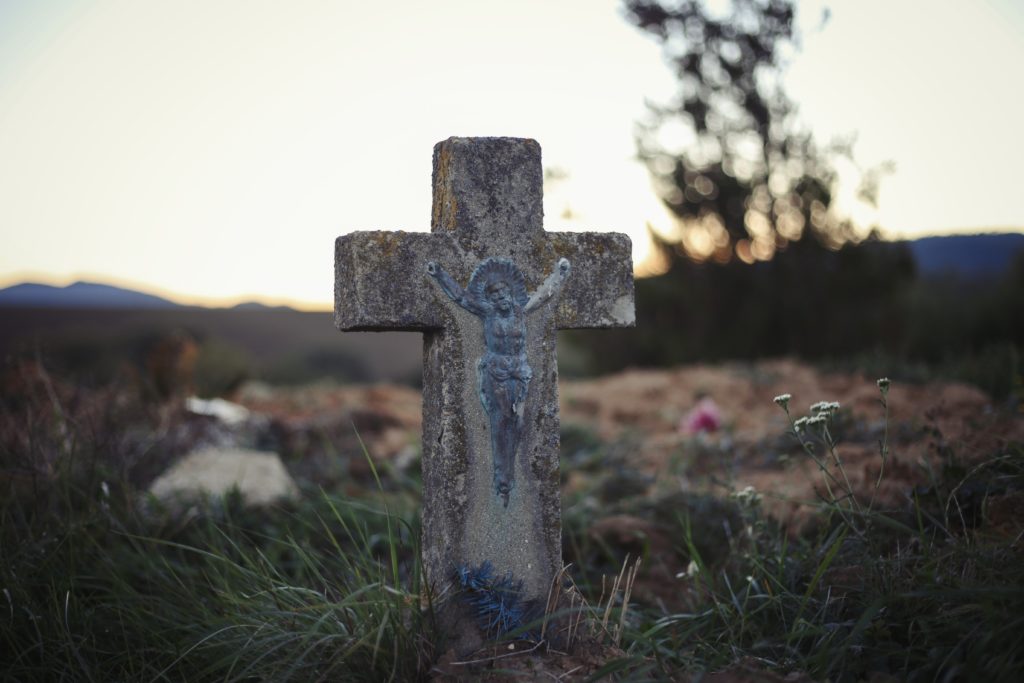Recently I read a book called “God of Surprises” (Wm. B. Eerdmans Publishing Co, $22.99), in which author Gerard W. Hughes suggests, as a spiritual exercise, writing your own obituary.
In a 2022 column, Father Ron Rolheiser makes a similar suggestion, pointing out: “There comes a time in life when it’s time to stop writing your résumé and begin to write your obituary.”
I’m always at my best in the early morning after a lengthy time alone with Jesus and two cups of strong coffee, which, happily, was the state in which I came upon the passage in “God of Surprises.”
So I seized my pen and notebook and with zero forethought wrote, “She lived life to the fullest, every moment! She struggled, sought, suffered, pondered, stretched herself. She asked Christ to restore her sight. She made a beautiful home, wherever she was. She loved flowers, trees, birds, the sky, the sea. She loved walking, reading, playing the piano, and she ordered her life so as to allow maximum time to enjoy and praise those things. She was lively. She had a sense of humor and a spirit of fun. She had many many character defects — hardness of heart, impatience, quickness to judge — but she worked on them and asked constantly for them to be removed. She”…
Just then, someone called who needed my help and I broke off.
So far, I haven’t gone back to complete my obituary. (Father Rolheiser suggests that we review and rewrite it each year).
But afterward I was struck that what came out so spontaneously wasn’t “She spent 20 years of her life on a bar stool and committed many egregious sins during and after that time,” nor “She was mean to her mother while in adolescence and has bitterly regretted the meanness ever since,” nor “Her severe narcissistic wound led her to take everything personally, hog the conversation, and demand love and attention far beyond her share.”
Nor on the other hand did I write, “She was valedictorian of her eighth-grade class, seventh in her class of over 300 her first year of law school, and has won several awards for her writing.”
I didn’t even put down, “She quit her high-paying job as a lawyer to pursue her vocation of writing,” or “She’s been sober 36 years,” or “She converted to Catholicism in 1996 and it has been the crown and glory of her life.”
I wrote what fills me with daily joy. I wrote the things for which I’m grateful. “Lord, I have loved the beauty of Thy house and the place where Thy glory dwelleth” (Psalm 26:8).
I didn’t even have time to get to my siblings, my friends, my companions in recovery, my fellow members of the Mystical Body, the angels, martyrs, saints, and unsung heroes who shore me up, light the way, and demonstrate every minute of my life that, as St. Catherine of Siena said, “All the way to heaven is heaven.”
Speaking of heaven, the Advent and Christmas seasons are simultaneously exhausting and strangely exhilarating. All kinds of bustling activity lead up to the birth of a baby — and then we’re invited to turn inward, taking stock of the previous 12 months and contemplating the 12 months ahead.
A wonderful passage in “The Way of the Disciple” (Ignatius Press, $14.95), a short book by Erasmo Leiva-Merikakis (now known as Father Simeon, a Trappist monk at St. Joseph’s Abbey in Spencer, Massachusetts) captures the paradox:
“True, Jesus ‘gives us rest.’ But we must be clear that such ‘rest’ is totally different from ‘resting up’ in order to get back to the daily toils of life, different, too, from recreation or distraction or vacationing, all of which are ordered to getting back to the ‘serious’ part of life. It seems to me that this ‘rest for our souls’ is intended by Jesus to be a real and genuine state of life, the natural condition in which a child of God habitually exists, and not just a passing phase of recovery. It is a deep condition of soul that is quite compatible with all the ordinary, exterior activities and efforts of human life. The one who truly becomes God’s child, like Jesus, enjoys such rest as the very element of existence in which he swims.”
Left to my own devices, I tend to veer between frenetic activity and physical-emotional collapse.
Still, that I was able to regard the sweep of my life and write so freely that recent morning is perhaps a sign of having been granted a certain “rest for my soul.” Beneath the surface anxiety, could it be that all those years of struggling, stretching, and praying had resulted in a strange kind of underlying peace as a state of life?
I hardly dare voice such a thought, as we all know what happens next: an utterly trifling occurrence — a banking snafu, a tire with low air — will throw me completely off course.
Still, I say: Enjoy those moments of peace when they come!
So as we enter 2024, let’s try writing our own obituary. Then let’s keep on living, as fully and as long as we possibly can.

